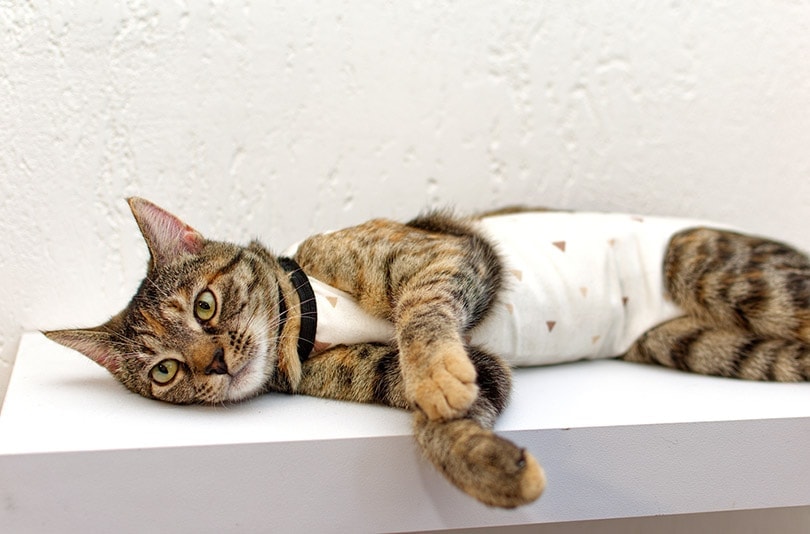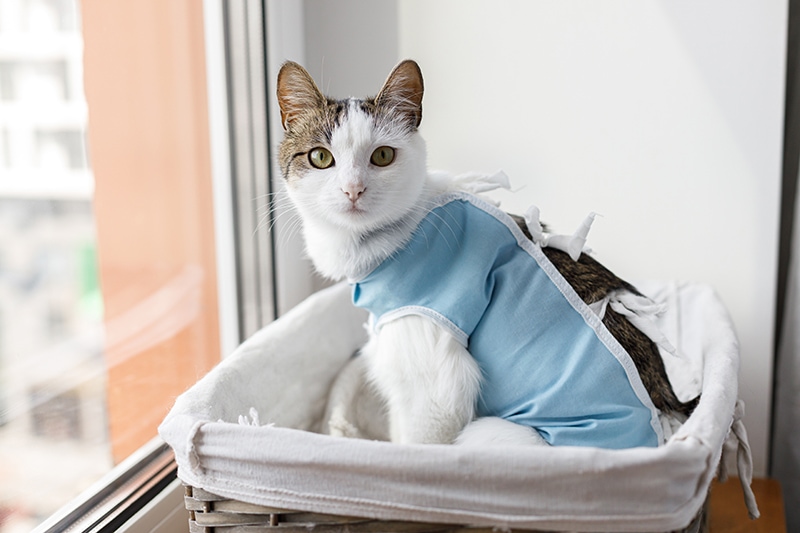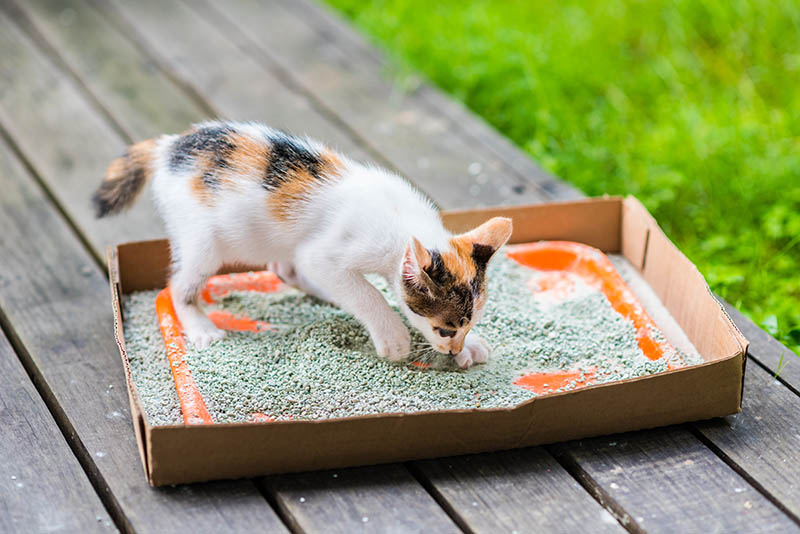Can Neutered Cats Still Mate? Vet Approved Facts & FAQ
By Jordyn Alger
Updated on

Click to Skip Ahead
Sterilization is a standard procedure performed to prevent accidental feline pregnancies. Neutering prevents your male cat from siring kittens, but does it stop his urge to mate? And when it comes to females, do spayed female cats still have the urge to mate?
The answer is yes; some sterilized cats may continue to try and mate, but they cannot impregnate a female. However, it isn’t common. It is often seen in older male cats, who may have mated before and developed experiences that compel them to try again.
While the urge to mate may also occur in older female cats, it is extremely uncommon because females don’t typically seek a mate unless they are in heat.
Behavioral Changes in Neutered or Spayed Cats
Neutered or spayed cats can experience behavioral changes. These changes do not affect a cat’s personality, temperament, or training; they alter or minimize their sexually dimorphic behaviors (or behaviors influenced by hormones).
Sterilized cats may roam less than unsterilized cats. Similarly, if you have multiple cats in one household, they typically get along better if they have all been neutered or spayed.

Top 6 Benefits of Sterilizing Your Cat
You may be wondering why sterilization is such a standard procedure. Neutering or spaying your cat presents several benefits for yourself, your cat, and your community.
1. Manages the Feline Population
The most obvious benefit to neutering or spaying your cat is population control. No one wants an unexpected litter of kittens thrust upon them, so sterilizing your cat is the best way to ensure that tremendous responsibility never falls on you by accident.
Additionally, managing the feline population in your community reduces the number of cats euthanized in animal shelters. Each year, over half of a million cats are put down in animal shelters. The more cats that are abandoned, the more overloaded animal shelters become. This can lead to an increase in euthanized cats.
2. Reduces Spraying Behaviors
Another benefit to sterilizing your cat is that it reduces spraying behaviors. Unneutered male cats have strong urges to spray walls and other vertical surfaces with urine, which marks their territory. By neutering your cat, you can cut spraying behavior down significantly.
3. Cools Aggression
Inter-cat aggression is often seen between unfixed male cats, as they may view each other as competing for their territory. Therefore, neutering can reduce fighting between male cats. This greatly benefits your cat since fights can lead to punctures, lesions, or other injuries. The less they fight, the less likely they are to become injured.

4. Minimizes Roaming Behaviors
Intact males have a strong urge to roam, especially during mating season. Roaming felines may be a nuisance to your community and a weight on your mind as you worry about your cat’s location and well-being.
Likewise, wandering may lead them into trouble (such as wild animals, inclement weather, or busy traffic). Thus, neutering or spaying your cat can minimize these behaviors and the issues that come with them.
5. Scent and Hygiene Changes
Unneutered male cats have pungent urine. Neutering your cat can lead to a subdued odor that cat litter can more easily suppress. Furthermore, some cat owners report that their male cats become better at self-grooming after they are neutered.
6. Increased Longevity
Neutered and spayed cats often live longer. The risk of developing major medical issues such as mammary cancer, testicular cancer, or uterine infections can be minimized or eliminated by neutering or spaying your cat.

Additional Responsibilities of Pet Owners With Sterilized Cats
While there are plenty of benefits to neutering or spaying your cat, it is important to note that these procedures can slow your cat’s metabolism slightly. This means that cats who are prone to overeating may be more likely to become obese if not carefully monitored.
Pet owners with sterilized cats should be aware of this and take extra steps to ensure their cats’ diet is healthy. Likewise, ensuring that your cat receives regular exercise is a great way to keep them fit.
Of course, all pet owners should keep track of their cat’s diet and activity levels even if they are not sterilized. The best way to ensure that your cat is on track to live a happy, healthy life is to make regular appointments with your vet to evaluate their health.
Final Thoughts
Neutered and spayed cats may still retain the desire to mate, but it is uncommon and typically only occurs in cats who have already experienced a mating season. However, neutered cats cannot successfully mate with females. If you have your cat fixed when they are young, they are highly unlikely to want to mate after the procedure. Neutering procedures provide several benefits, so talk to your vet to determine when is the right time to sterilize your cat.
Featured Image Credit: Anna Belkina Spb, Shutterstock













